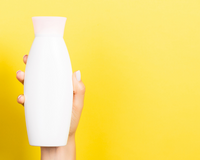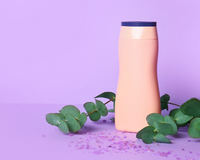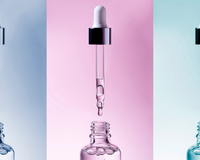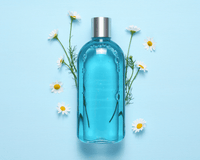Black hair care products Canada, we used to think that taking care of our strands required two things: perms and grease. That was before we gained our enlightened understanding of black hair. Anything that wasn't shampoo or oil appeared to be referred to as grease. Hairdressing or conditioner were popular brand names, but we don't recall them being called anything other than grease in our family. Black hair can become brittle, dry, or damaged if not properly cared for. There are several methods for keeping hair healthy and nourished while minimizing the chance of breaking.
Black hair comes in many different textures and thicknesses. It usually has a curly or spiral form, with loose or tightly coiled curls. Because of the form of the hair follicle, this happens. Curly hair is produced by a curved hair follicle, whereas straight hair is produced by a straight hair follicle. There are a few fundamental distinctions between Black and other forms of hair. The following characteristics can have an impact on hair care: Every strand of human hair has a protective outer covering, known as the cuticle. According to a 2015 study, Black hair has a thinner cuticle layer than other hair types, which means strands are more likely to break.
Individuals of African origin have fewer hair follicles on average than white people, with 90,000 compared to 120,000 for black hair. Hair loss may be more evident as a result, and a person's scalp may be more visible. The scalp generates sebum to keep the skin and hair moisturized. This oily material seals in moisture by moving from the scalp to the hair shaft. When the hair is straight, the procedure is easier, and wavy hair is more prone to drying.
How To Choose Black Hair Care Products Canada?
Knowing what you need is the first step in finding the proper items. Understanding your hair form is the first step in determining what you require. A cuticle, cortex, and medulla make up hair. The cuticle is a scale-like coating that covers the brain. Depending on conditions such as pH and temperature, the cuticle can rise and fall significantly. The cuticle protects the cortex, somewhat like a protective shield. Keratin bundles are joined by disulfide bonds in the cortex. Relaxers alter these connections, which control the form and strength of the hair. Hydrogen bonds are weaker bonds that determine our hair structure. What causes your hair to alter when it's wet or set with a liquid lotion?
It's all about hydrogen bonding. Wetting hair or using heat to temporarily modify the way the hair lays can affect hydrogen bonds. This is why water-based style and setting solutions are ideal for afro hair. Due to damage to the cuticle covering the protein cortex, all hair strands will develop microscopic holes in the cuticle over time. Straightening, blow-drying, combing, bleaching, and even exposure to UV rays at the beach can cause hair damage. This is what people mean when they talk about hair porosity. When you apply items to your hair, you're either trying to eliminate dirt, perspiration, and natural oils from the environment, or you're trying to moisturize or style it. Moisturizers must penetrate the cuticle to be effective. Conditioners and styling chemicals cling to the cuticle, locking in moisture. Before you can style, you must first wash, condition, and moisturize your hair.
Daily Hair Care Tips For Black Hair Tips
You've got a lot of hair. No, seriously. You lose roughly 100 hairs every day and you're not even aware of it! Hair grows at a rate of around 6 inches per year, so you may expect about half an inch of new growth each month. More to come throughout the summer. When you're worried, use less. Eating healthy and taking a multivitamin will aid in the development of your hair. Using a high-quality lightweight scalp oil helps increase blood flow to the scalp and promote healthy hair development.
Yes, the age-old issue of losing our hair quicker than we can grow has given rise to the notion that Afro hair does not grow. Dryness, wearing too-tight hairstyles, and over-manipulation of hair are some of the most common reasons for breaking. So, in addition to avoiding tight styles, heat, and fine-tooth combs, choosing Afro hair products that infuse moisture into your hair will aid in the prevention of breaking. Each product has moisturizing components that help to prevent hair breakage and leave your strands hydrated, smooth, and manageable. While a dry, itchy scalp is a typical ailment for many of us, it doesn't make it any less irritating!
Styling Tips For Black Hair
Now that you understand how hair functions, you'll need to discover high-quality substances to cleanse, condition, moisturize, and style it. What do you do first, and how do you know they'll work? Take a look at the components. Worryingly, far too many Afro hair products contain substances and chemicals that have been connected to a variety of health risks ranging from skin irritation to cancer.
Take, for example, silicones. They're featured in a variety of afro hair treatments and promise to add hydration and shine. Unfortunately, the sheen of these goods is synthetic, since it comes from the silicone's plastic. Silicones also prevent moisture from accessing the hair shaft, attracting debris and buildup to your strands. What's the end result? Your hair will become dull, lifeless, and brittle after some initial shine, leaving it vulnerable to breaking. These sealants, like all of our components, are natural and provide a gentler way to manage your hair.
Healthy, clean, and moisturized hair is the ideal foundation for a fantastic style. Styling products work best when hair isn't burdened down by a buildup of dust, debris, or perspiration, so shampoo before styling. For hold, we recommend using basic water-based treatments and using gels, pomades, and mice sparingly.
It's not every day that you get to "laid your edges"! You'll need fewer products overall if you get comfortable with your hair's natural texture and look and discover styles that work with, rather than against, your natural afro hair. When it comes to twist-outs and braid-outs, we've found that employing the proper technique and then adding butter before twisting produces amazing results.









